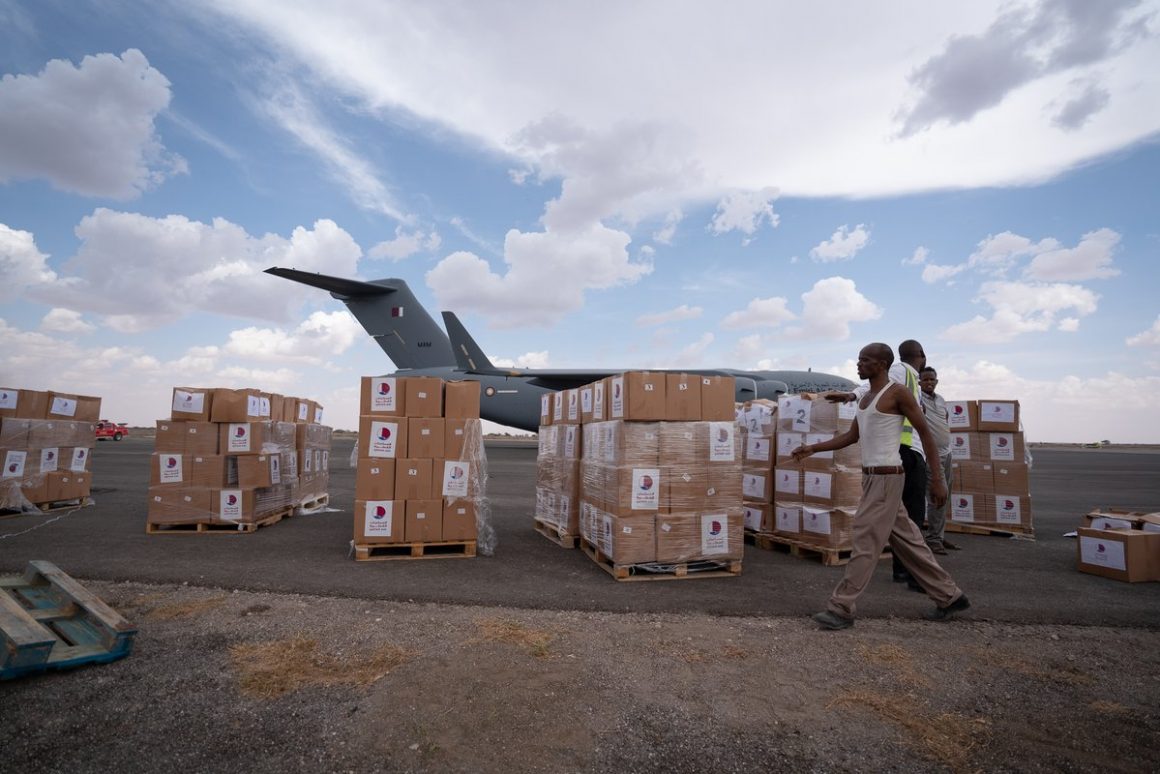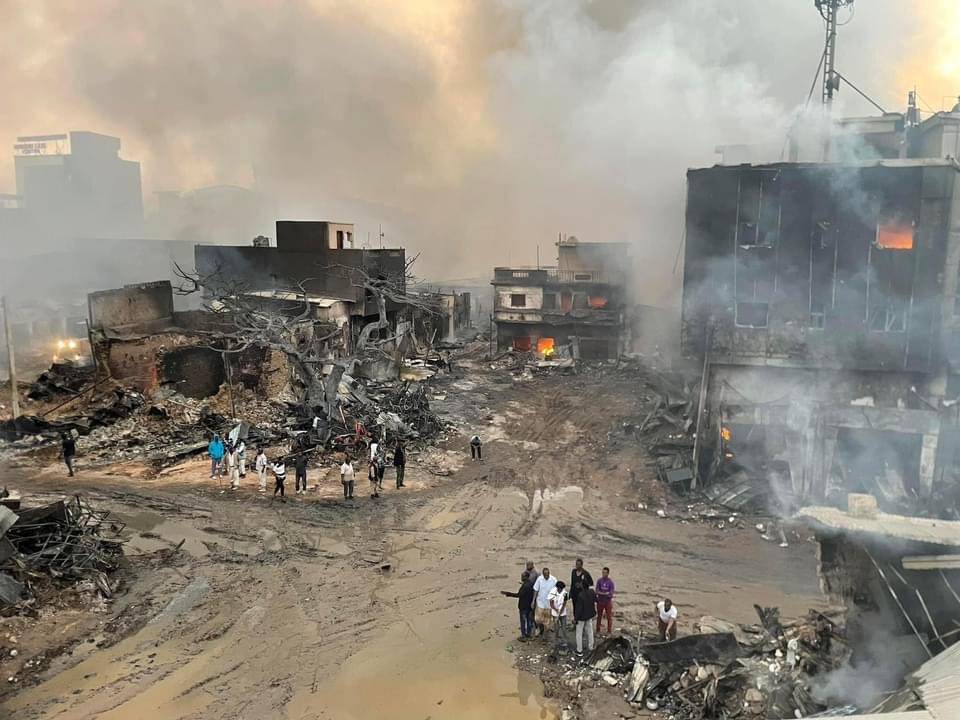Approximately 1.4 million children, which accounts for over 44% of population of children under the age of five, are likely to be ‘acutely’ malnourished through mid-2022.
Qatar Fund for Development, in cooperation with the Qatar Amiri Air Force, has sent 45 tons of food aid parcels to help alleviate families in Somaliland. This was to address the harsh conditions caused by drought as well as fire that had erupted in the main market of the capital Hargeisa.
“This urgent assistance comes to play an important role in alleviating the severity of this humanitarian disaster for the affected and most needy people in the Somaliland region,” Director General of Qatar Fund for Development Khalifa Al Kuwari said, according to a Qatar News Agency’s report.

The urgent aid “also plays a role in promoting the second goal of the sustainable development goals relating to hunger,” he added.
Fire in Hargeisa market
A major fire tore through Waheen market located in Hargeisa, northern Somalia, early April, which left two dozen people injured and hundreds of businesses destroyed.
The market, home to approximately 2,000 shops and stalls, experienced destructive fires which began on April 1st.
“This place was the economic centre of Hargeisa and even though the firefighters did their best to contain the fire, the market is destroyed,” Hargeisa’s Mayor Abdikarim Ahmed Moge told reporters at the scene, Al-Jazeera reported.
Drought assessment in Somaliland
Somalia and the Somaliland region have witnessed one of history’s most environmental disasters with Somalia’s displacement camps facing dire pressure as more than 300,000 people left their homes in search of food and water. This year, the country undergoes its ‘worst’ drought in decades, The Guardian reported in February.
The United Nations Secretary-General’s Deputy Special Representative and Resident and Humanitarian Coordinator for Somalia, Adam Abdelmoula, visited Somaliland to assess the drought situation later that same month.
He underlined a rise in the number of displaced families arriving from other drought-hit parts of the country, seeking refuge in Somaliland.
“This is further stretching the thin resources available to the local communities,” Abdelmoula said. “There is a need for increasing investments in durable solutions in the drought-prone regions and enhancing the delivery of social services in areas hosting displaced communities.”
With the brutal nature of drought, many Somalis are left hopeless. Abdi Hashi, a farmer and entrepreneur in Somaliland said: “You cannot rely on the rain to do farming. Either it’s recurring drought or if rainfall comes, it floods. The seasons have become unpredictable,” the BCC reported.
Qatar, UAE and Somaliland relations
In February 2017, the Somaliland parliament voted to provide the United Arab Emirates a military and naval base in the port city of Berbera.
The vote came following a deal signed between Dubai Ports World (DP World) and the Somaliland region government to acquire the port of Berbera over a 30-year period.
The port, 90 kilometres from the shores of Yemen, poses a deep strategic importance to UAE as it supports UAE forces to tighten its blockade against Yemen through the Saudi-led coalition, reports said.
According to the official Somaliland Civil Aviation and Airports Authority website, however, Qatar “has been blocking DP World agreement with Berbera. They have always been against our development interests,” President Bihi said during a press interview in 2019.
During the onset of the Covid-19 pandemic, Qatar further demonstrated its international diplomacy in facilitating a global humanitarian outreach by sending a plane onboard humanitarian emergency delivery and medical aid to Somaliland in May 2020.
The aid included masks, gloves, and protective kits for health care workers.
Follow Doha News on Twitter, Instagram, Facebook and Youtube







